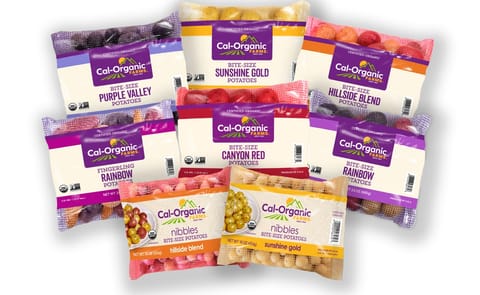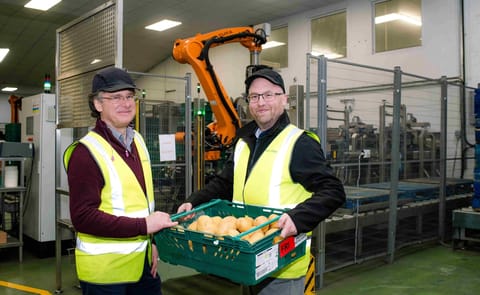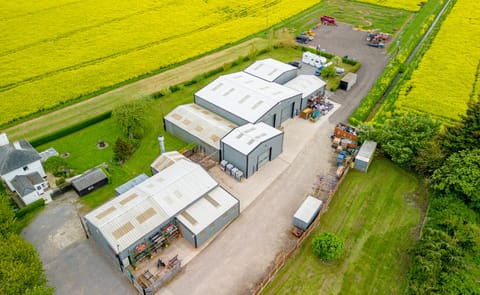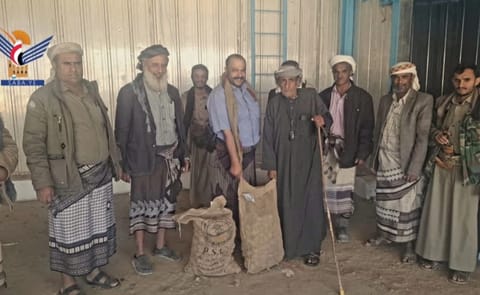Waste from potato crops could be ‘recycled’ into personal care products such as medical gels and beauty creams – thanks to a new UEA research project.
Primaire tabs
UK research project intends to turn potato waste into beauty creams.

Waste from potato crops could be ‘recycled’ into personal care products such as medical gels and beauty creams – thanks to a new University of East Anglia (UEA) research project.
The food industry throws away millions of tonnes of vegetables each year. Surplus supply, processing waste and the fact that many supermarkets only accept ‘perfect’ fruit and vegetables of an exact size and shape contribute to the problem.
Now scientists at UEA are working on new uses for starchy feedstocks from crops such as potatoes, which would otherwise go to waste.
Together with colleagues at the John Innes Centre, the University of Bath, and project leaders at the University of Exeter, they will pioneer processes to generate new types of gel which could be used across pharmaceutical, beauty, home product and food industries.
The work has been made possible thanks to a £2.8 million grant from the Engineering and Physical Sciences Research Council (EPSRC), the Biotechnology and Biological Sciences Research Council (BBSRC) and the Innovate UK IB Catalyst Programme.
The research team at UEA will receive around £800,000 for the four-year project.
Prof Yaroslav Khimyak from UEA’s School of Pharmacy:
Dr Jesus Angulo, also from UEA’s School of Pharmacy:
The food industry throws away millions of tonnes of vegetables each year. Surplus supply, processing waste and the fact that many supermarkets only accept ‘perfect’ fruit and vegetables of an exact size and shape contribute to the problem.
Now scientists at UEA are working on new uses for starchy feedstocks from crops such as potatoes, which would otherwise go to waste.
Together with colleagues at the John Innes Centre, the University of Bath, and project leaders at the University of Exeter, they will pioneer processes to generate new types of gel which could be used across pharmaceutical, beauty, home product and food industries.
The work has been made possible thanks to a £2.8 million grant from the Engineering and Physical Sciences Research Council (EPSRC), the Biotechnology and Biological Sciences Research Council (BBSRC) and the Innovate UK IB Catalyst Programme.
The research team at UEA will receive around £800,000 for the four-year project.
Prof Yaroslav Khimyak from UEA’s School of Pharmacy:
“We will be creating new gel materials which could have a range of uses – from cosmetics and beauty products to medical wound-healing and drug delivery creams.Together with JIC colleagues, the project will investigate how nature’s catalysts - enzymes - can be used to make starch-based gels using nanoscale fibres. The team at UEA will investigate the properties of starches at a molecular level.
“We will use UEA’s unique Nuclear Magnetic Resonance research infrastructure to study these very complex materials at molecular level. Our aim is to uncover the origins of the diverse properties of the gels, where the control of interactions between solid and liquid parts is crucial.
“As well as helping reduce waste, this project will also reduce production costs and CO2 emissions currently associated with the manufacturing of conventional gels. It will be both environmentally and biologically friendly.”
Dr Jesus Angulo, also from UEA’s School of Pharmacy:
“This is a very good example of scientific research that has a direct societal impact as the forefront of its horizon.Prof Rob Field from the John Innes Center (JIC):
“This is good news for potato farmers because it means that waste crops could soon be put to better use.
“Cellulose is a truly sustainable, renewable and multifunctional natural material, and starch is a highly abundant natural polymer – found for example in potatoes and rice.
“This project will allow us to generate functional hydrogels from these cheap materials – it will produce high added value from waste.
“The results will permit us to tailor and expand the range of gel properties, which, in addition to the new enzymatic processes, will allow us to produce sugar-based hydrogels with custom-made properties.
“Finding environmentally benign ways to convert waste streams from agriculture into value-added products presents many challenges and opportunities. It needs a multi-disciplinary team to devise practical solutions that map to industry needs. It is great to have the opportunity to work as part of this team, which brings together science and engineering in a targeted manner.”Lead researcher Prof Eichhorn from the University of Exeter:
"I am delighted that this project has been funded as it brings together a multidisciplinary group of researchers aiming to better understand the use of enzymes for making gels. Spanning fundamental to translational research, this project will enable me to explore new areas of cellulose and polysaccharide research."
Like to receive news like this by email? Join and Subscribe!
Get the latest potato industry news straight to your WhatsApp. Join the PotatoPro WhatsApp Community!
Sponsored Content
Sponsored Content
Sponsored Content
Sponsored Content








